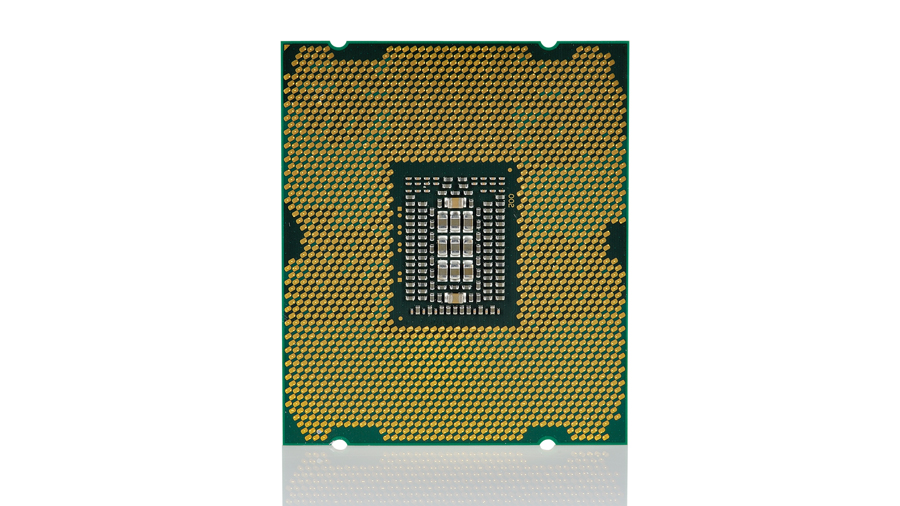TechRadar Verdict
Pros
- +
Increased clocks and Turbo Boost
- +
Fastest desktop CPU available
- +
Can be overclocked
Cons
- -
Not much extra performance from last generation
- -
Price
Why you can trust TechRadar
The best just got better. That'll be Intel's pitch for the new Core i7 3970X. And strictly speaking, it's absolutely true.
When the existing Intel Core i7 3960X launched almost exactly a year ago, it was the fastest PC processor on Earth. Since then, nothing has come close. AMD, quite frankly, doesn't operate in this part of the market, so it was always going to be down to Intel to raise the bar.
Now it has, and it's hard to imagine how we could be more underwhelmed. How so?
The new 3970X is essentially an upclocked version of the old 3960X. The nominal clockspeed climbs from 3.3GHz to 3.5GHz, while the maximum Turbo speed inches from 3.9GHz to 4GHz. And that, folks, is your lot.
There are no new features. There's no more cache. And, critically, there are no extra cores. It's the latter that really grates because, just like the 3960X, this is a Sandy Bridge E based processor. That means it's got eight cores, but just six are enabled.
That's not because there's something wrong with the Sandy Bridge E die. You can have a Sandy Bridge E with all eight cores enabled, but only in Xeon trim. Xeons are notionally only for workstations and servers, and Intel charges a bomb for them.
Wanna Xeon
When the 3960X was first revealed, Intel claimed that it had balanced clock speed with core count to deliver the best performance for desktop users. The inference is that the more cores you enable, the lower the clockspeed you can achieve in a given thermal and power budget.
Problem is, Intel will sell you an eight-core Xeon chip clocked at 3.2GHz, so the penalty back then was slim to none. It's a little bigger now, but by any sane metric, the gap hardly seems dramatic.
Instead, we'd like to see the full eight cores running at the new 3970X's 3.5GHz clocks. That would begin to justify the outrageous price tag and go some way towards convincing us Intel was delivering the best possible product.
As it is, the new 3970X inches the game on from the oxymoronic 3960X. On the one hand we're once again talking about a chip that's massively faster than AMD can manage and undoubtedly the fastest PC processor in the world. On the other, it's disappointing not to have Intel fully unleash the Sandy Bridge E die for the desktop.
Benchmarks
CPU rendering performance
Cinebench R11.5: Index score: Higher is better
INTEL CORE I7 3970X: 10.9
INTEL CORE I7 3960X: 10.4
INTEL XEON 2687W: 13.1
CPU encoding performance
X264 v4.0: FPS: Higher is better
INTEL CORE I7 3970X: 51
INTEL CORE I7 3960X: 49
INTEL XEON 2687W: 61
CPU gaming performance
World in Conflict: FPS: Higher is better
INTEL CORE I7 3970X: 119
INTEL CORE I7 3960X: 117
INTEL XEON 2687W: 116
The direct comparison with the old 3960X doesn't make things look very exciting either. Across our benchmarks, the performance increase can only be described as infinitesimal. When you look at the clockspeeds the 3970X actually runs at, you begin to understand why.
Where the 3960X ran at 3.6GHz with all four cores loaded, the 3970X achieves 3.7GHz - slightly less than three per cent faster. If that wasn't enough, our Core i7 3970X sample was actually slower when it came to overclocking, topping out at 4.5GHz maximum to the 3960X's 4.8GHz top clock.
As ever, overclocking isn't a precise science, but the 3970X doesn't look like a big step forward. In fact, it's not a big step forward when it comes to anything.
Technology and cars. Increasingly the twain shall meet. Which is handy, because Jeremy (Twitter) is addicted to both. Long-time tech journalist, former editor of iCar magazine and incumbent car guru for T3 magazine, Jeremy reckons in-car technology is about to go thermonuclear. No, not exploding cars. That would be silly. And dangerous. But rather an explosive period of unprecedented innovation. Enjoy the ride.
